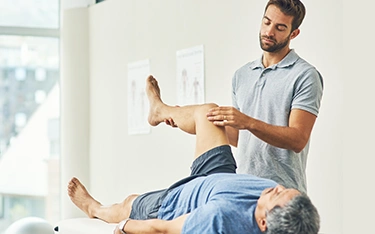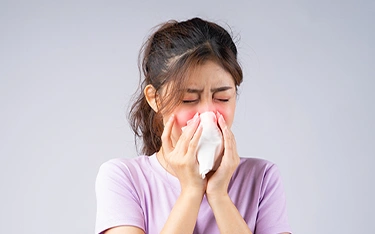Arthritis can feel like a full stop to your active life. Stiffness, pain, and limited mobility make even simple tasks feel difficult. However, the right arthritis exercise plan can make a significant difference. With safe and consistent movement, many patients experience improved flexibility, reduced pain, and even a better mood.
At Dr Batra’s®, we’ve seen how holistic treatment, combining exercise and homeopathy, can help people reclaim mobility and confidence. Let’s explore how movement helps manage arthritis symptoms.
Insights from a global study
A study on ResearchGate identified osteoarthritis as a growing global health concern that disrupts daily life. Interestingly, the study documented a case where customised homeopathic treatment brought significant relief in joint pain and improved mobility. This shows how homeopathy can play a natural and effective role in managing osteoarthritis symptoms and improving quality of life.
Best Exercises for Arthritis
Finding the right arthritis-friendly exercises can make all the difference. The goal is to stay active without putting too much strain on your joints. Here are the top types of exercises that can help manage arthritis symptoms:
- Stretching routines: to maintain flexibility and reduce stiffness
- Low-impact aerobic exercises: like walking or water aerobics to improve circulation and endurance
- Strength training: to support joint function, build muscle mass, and reduce pain over time
- Balance exercises: such as Tai Chi or single-leg standing, can prevent falls and improve coordination.
- Mind-body exercises: like yoga or Pilates to ease mental stress and enhance overall body awareness
These exercises not only support your joints but also help in boosting mental well-being. Always start with gentle movements and build up gradually based on your comfort and capacity.
Dr Batra’s® pro tip:
Do gentle exercises like walking, stretching, or yoga daily to ease arthritis pain. Pair it with homeopathic treatment to reduce joint stiffness and support long-term relief naturally.
Why Inactivity Can Worsen Arthritis
When your knees ache or your joints feel stiff, it’s tempting to avoid movement. However, inactivity can do more harm than good. Here’s why:
- Muscles weaken: offering less support to joints
- Joints stiffen: leading to a reduced range of motion
- Pain worsens: due to poor circulation and joint deterioration
- Weight gain: adds more pressure on weight-bearing joints
Prolonged inactivity can increase the risk of other health problems like heart disease, diabetes, and depression.
Benefits of Exercise for Arthritis Management
Exercise helps improve joint strength, flexibility, and overall well-being. According to a study published in the Annals of the Rheumatic Diseases, regular physical activity reduced the risk of hip replacement surgery by 44% over six years.
Here’s how arthritis exercise helps:
- Reduces joint pain and stiffness
- Strengthens muscles around the joints
- Improves balance and coordination
- Increases flexibility and range of motion
- Enhances mood and energy levels
Types of Arthritis Exercises to Try
Not all exercises are suitable for every patient with arthritis. Here are some low-impact, joint-friendly workouts to consider:
- Stretching: improves flexibility
- Strength training: builds supportive muscle strength
- Swimming: gentle on joints while working the whole body
- Walking: keeps joints active and supports weight loss
- Yoga or Tai Chi: promotes balance, flexibility, and joint stability
Always consult a doctor or physiotherapist before starting a routine.




